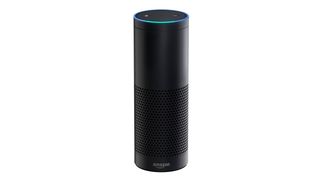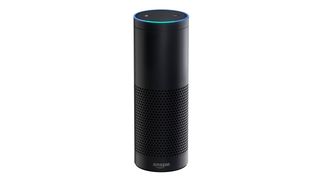I’ve been talking to Alexa for over a decade now. One of the earliest and arguably best chatbots has answered thousands of questions, played albums of songs, and turned on and off countless smart lights. It’s been consistent, trustworthy, and increasingly unremarkable.
That was all supposed to change this year.
Let’s go back to September 2023, when outgoing Amazon hardware chief David Limp gave us an eye-popping demo of an all-new AI and LLM-powered Alexa that sounded more human, remembered context, needed no watchword, and could almost carry on a real conversation.
At the time, I called the demo “excellent and creepy,” but I was also looking forward to it. It’s not just that I have half a dozen Amazon Echo products in my house and still query them to this day. Amazon was playing catchup to the AI chatbot of the moment, ChatGPT. Compared to the GPT models OpenAI keeps slipping inside the latest ChatGPT, Alexa’s skills look quaint, at best. ChatGPT is an assistant, while Alexa is merely a utility, like a voice-enabled switch.
Since the Alexa AI unveiling last year, Google unveiled its powerful Gemini, and just last month, Apple introduced Apple Intelligence at WWDC 2024, which will, among other things, introduce us to a smarter, more conversational, and natural-sounding Siri.
If Apple manages to ship the Apple Intelligence-enhanced Siri in the best iPhones this fall, Siri might finally reclaim its digital assistant leadership position from, if not Google and OpenAI, at least Amazon Alexa.
As it stands, it looks like the odds are in Apple’s favor.
Standing still
Since that launch event, Limp left Amazon, and it feels more and more like this is less Jeff Bezos’s Amazon (he left as CEO in 2021) than it is new CEO Andy Jassy, who is clearly more focused on Amazon enterprise services like AWS and the Amazon Prime business.
In Limp’s place is now Panos Panay – late of Microsoft – who is something of a hardware and software genius. Even though it’s been months since Panay joined, the normally voluble Panay has yet to give an interview or front an Amazon product launch. He’s been quiet, and when I asked Amazon if I could chat with Panay about the state of Amazon Alexa AI, they basically said not yet.
It might feel like Amazon is shifting away from a hands-on AI confrontation with OpenAI, Google, and even Microsoft and its GPT-powered Copilot. After all, AI time is different than typical tech development time. What used to take 18 months now takes six, and if it’s a generative model update, the cycles are just three months long. Waiting 10 months to unveil any Alexa changes is akin to standing still.
I look for hints of Alexa updates anywhere I can find them, including in the new Echo Spot introduced this week. It’s a redesign of the original bedside clock that now gives up half the screen real estate for a speaker. That audio element can play music, but it will also be used to deliver Alexa’s prompt responses.
Nowhere in the product press release does it mention AI or artificial intelligence. The description of Alexa on the Spot is essentially the same as it would be on any other Echo device. Panay, by the way, is notably absent from the release. Not even a sizzle quote.

Amazon offers an update
In frustration, I asked Amazon if they could tell me anything about the progress being made on the updated Alexa they promised for 2024. To my surprise, an Amazon spokesperson sent this quote:
“Our vision for Alexa remains the same—to build the world’s best personal assistant. Generative AI offers a huge opportunity to make Alexa even better for our customers. We have already integrated generative AI into different components of Alexa, and are working hard on implementation at scale—in the over half a billion ambient, Alexa-enabled devices already in homes around the world—to enable even more proactive, personal, and trusted assistance for our customers. We are excited about what we’re building and look forward to delivering it for our customers.”
This jumped out at me: “We have already integrated generative AI into different components of Alexa.”
Wait a minute. You have? The thing about Alexa that’s different from, say, Siri, is that instead of requiring a sizeable OS update to alter it, Alexa updates come constantly and are usually slipstream. Remember when you woke up one day and found that Alexa could tell you to “thank your driver” for delivering your Prime packages? Right. That stuff just shows up (rather like your packages).
Amazon offered no details on how we might recognize these Generative AI flourishes, but it’s clear to me they still do not reach the level of conversational generative AI.
At least Amazon acknowledges that Generative AI is still important, and the work continues.
Also, Amazon better hurry up if it wants Alexa to remain relevant in this vast and ever-changing AI landscape.
You might also like
Services Marketplace – Listings, Bookings & Reviews
